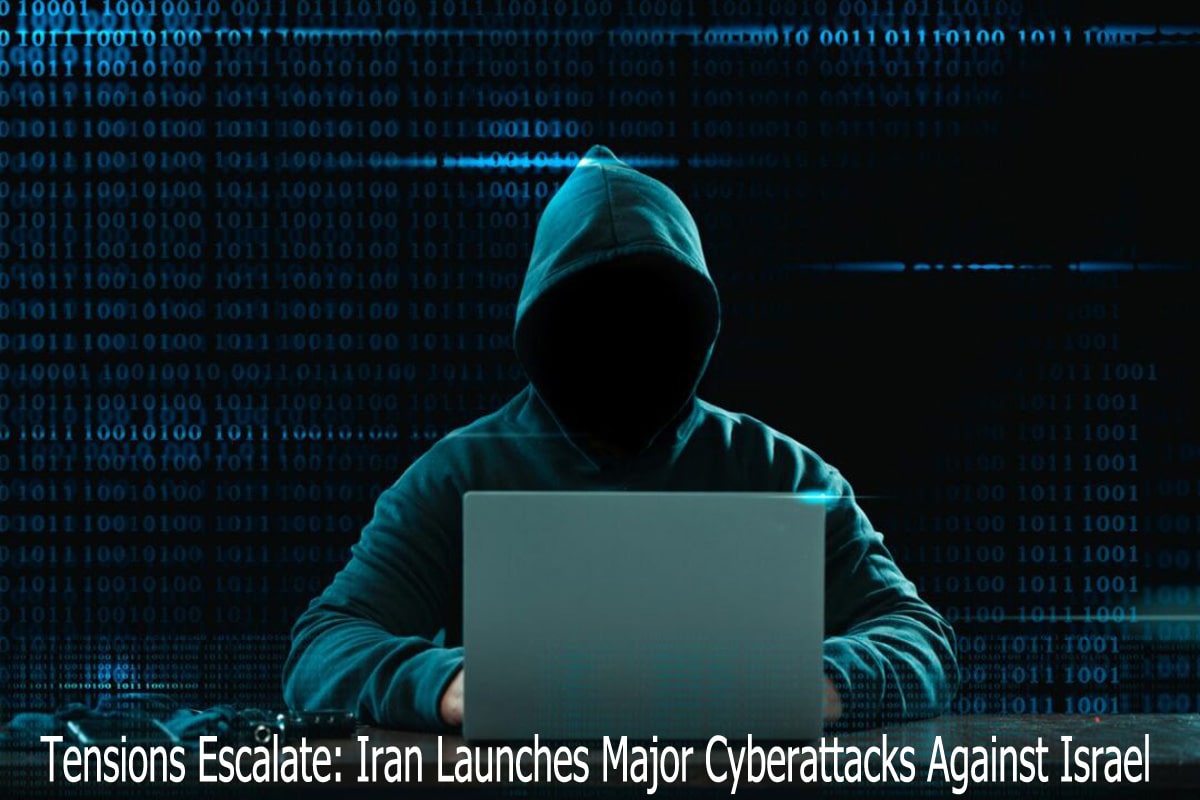
Tensions Escalate
Cyberspace has become a more complex and secret battlefield in the geopolitical war between Israel and Iran. Over the past two days, cyberattacks on Israel’s digital infrastructure have surged by an alarming 700%, according to a report by global cybersecurity firm Radware.
This spike follows Israel’s airstrike on Iranian nuclear and military facilities during Operation Rising Lion on June 13, 2025. Iran’s retaliation has now extended beyond physical warfare, targeting digital platforms and raising global concerns over the potential for wider escalation.
Coordinated and High-Impact Cyberattacks
Radware reports that the attacks have increased not only in number but also in complexity and potential damage. Types of attacks include:
- DDoS (Distributed Denial of Service) attacks on Israeli government and media websites
- Network infiltration targeting energy and defense sectors
- Malware and ransomware aimed at stealing or encrypting sensitive data
- Data breaches, including access to internal emails and classified documents
Key targets include government websites, national banks, telecom providers, and public broadcasting networks. Several critical services were briefly disrupted, including early warning systems and digital hospital access.
Involvement of Pro-Iranian Hacker Groups
Cyber intelligence analysis has revealed the involvement of several pro-Iranian hacker groups, including:
- Arabian Ghost, which claimed responsibility for taking down Israeli radio broadcasts
- The mysterious Team Bangladesh threatened Israel-supporting Arab nations.
- Anonymous Telegram-based organizations disseminating hacking tools and coordinating attack tactics under the #OpIsrael banner
Although Iran’s government has not made any official claims, many analysts strongly suspect state-sponsored involvement, based on the sophistication, scale, and targets of the attacks.
Iran’s Cyber Retaliation Strategy
These digital strikes are believed to be part of Iran’s asymmetric retaliation strategy. As direct military confrontation carries significant risks, cyberspace offers an alternative battleground that is effective, low-cost, and difficult to trace.
Cyber warfare causes both immediate and long-term disruption: disabling logistics, sabotaging government communications, and undermining public confidence in national security.
Israel’s Response and Global Warnings
Israel’s cyber defense agencies have raised their alert level and instructed all critical sectors to enhance their digital security protocols. The general public has also been warned of potential disruptions to essential online services.
Radware warned that Israel’s allies and other digitally linked nations in the Middle East may also become targets or suffer collateral damage from these cyber offensives.
Recommended Cybersecurity Measures
Radware recommends several key strategies for governments and organizations to prevent and withstand such attacks:
- Implement multi-layered cybersecurity systems to block various threat types
- To identify suspicious activity quickly, use AI-powered threat detection.
- Educate employees, especially remote workers, to prevent social engineering attacks
- Make regular backups of important data and create thorough strategies for disaster recovery.
Conclusion
The Iran-Israel conflict has shown that modern warfare is no longer confined to physical battlegrounds, but is now also fought digitally. Within hours, a nation’s critical systems can be paralyzed without a single missile being launched.
For countries like Indonesia and others, this serves as a critical reminder of the urgent need to strengthen national cybersecurity resilience. In today’s hyperconnected world, the ability to defend against cyber threats may be the key to maintaining national stability in the years ahead.



